SMART CITY
SMART INNOVATION
WEBZINE2023 Vol.06, No.1
All about Lab
KAIST AIxMobility Laboratory
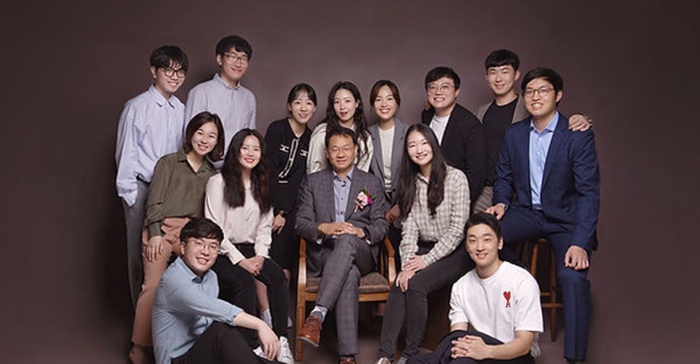
KAIST AIxMobility Laboratory
-
- AixMobility lab deals with design, operation, and management methodologies of transportation systems for sustainable society. Major research fields include modeling and prediction of transportation phenomena, safe and efficient operation of transportation systems using ITS (Intelligent Transportation Systems) combining cutting edge Artificial Intelligence Technologies. Also, we extend to the development of intersection safety system including AI-based image processing and prediction for smart city.
-
-
AIxMobility lab is dedicated to researching and developing solutions to improve urban traffic efficiency and safety through the use of various AI technology. With the complex interplay between vehicles, public transports, pedestrians, and traffic control systems, we are committed to advancing the fields of traffic prediction, traffic simulation, and image processing. Our goal is to pave the way for a safer and smoother urban transportation system.
The current research topics include:
-
AIxMobility lab is dedicated to researching and developing solutions to improve urban traffic efficiency and safety through the use of various AI technology. With the complex interplay between vehicles, public transports, pedestrians, and traffic control systems, we are committed to advancing the fields of traffic prediction, traffic simulation, and image processing. Our goal is to pave the way for a safer and smoother urban transportation system.
- 1.
Traffic Prediction and Simulation Development
- 2.
AI based Traffic Signal Control
- 3.
Vision based Traffic Information Processing and Prediction
- 1) Traffic Prediction and Simulation Development
-
- We focus on the important task of accurate traffic forecasting, as it determines travel time for both urban and highway travel. Thanks to the development of Intelligent Transportation Systems (ITS) technology, we're able to collect traffic volume and travel time data through various collection systems. By leveraging this vast amount of traffic data with AI technology, we're able to predict traffic state with impressive accuracy - from as short as 1 hour in the future, to as long as 6 hours or even days later - with continuous improvements in our forecasting algorithms. To more efficiently improve traffic conditions, we also conduct experiments with various traffic policies by simulating in actual roads and traffic conditions. We're constantly developing new traffic simulation models and actively conducting studies on vehicle behavior models included in the simulations. Through this research, we aim to help policymakers make informed decisions and ultimately create safer and more efficient transportation systems.
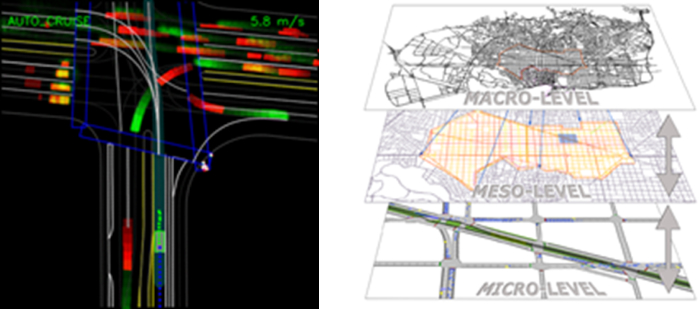
- 2) AI based Traffic Signal Control
-
- We're also dedicated to improving traffic conditions in urban areas, which are heavily impacted by traffic signals. While current signal systems are designed based on time-of-day traffic patterns, they struggle to adapt to real-time changes in traffic flow and lack the ability to coordinate effectively between intersections. To address these challenges, we're conducting research focused on improving the efficiency of traffic signals in downtown areas using reinforcement learning technology. By prioritizing linkage and cooperation between intersections, we're developing innovative approaches to optimizing signal timing and coordination. Additionally, in preparation for the rise of autonomous driving, we're designing signal systems that are tailored to individual vehicle routes, and exploring routing algorithms that can further enhance urban traffic conditions.
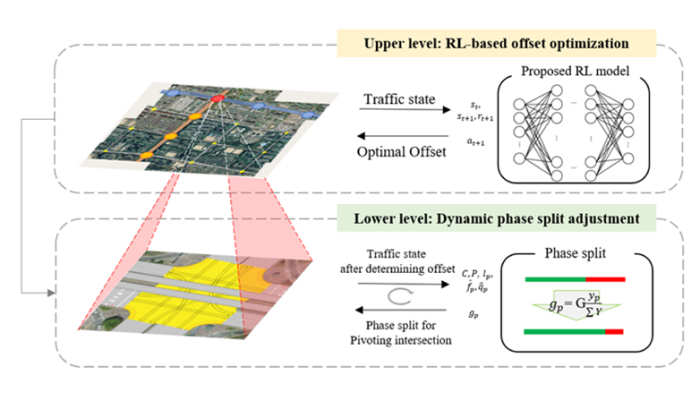
- 3) Vision based Traffic Information Processing and Prediction
-
- Lastly, we're leveraging the rapid development of AI technology and image processing to advance our understanding of traffic patterns and reduce the risk of accidents. We've developed an intersection safety system that uses edge computer with camera to extract location and speed data for both vehicles and pedestrians. By predicting future locations and calculating the risk of potential accidents, we can deliver critical safety information to drivers in real-time. In addition, we're also conducting innovative research on aerial imaging of city roads through the use of drones. By extracting individual vehicle routes and converting them into traffic information, we're exploring new avenues for enhancing our understanding of traffic patterns and improving the efficiency of our transportation systems.
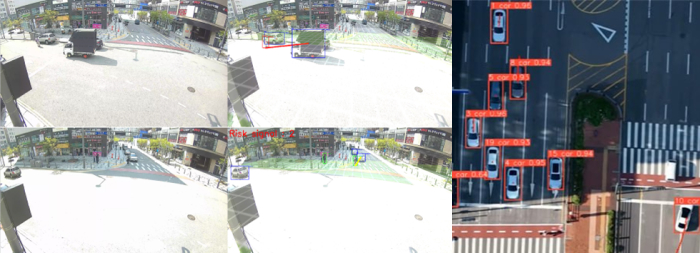
-
- Dec 2022 : Professor Hwasoo Yeo received ‘Creative Lecture Award’ on KAIST Q-Day
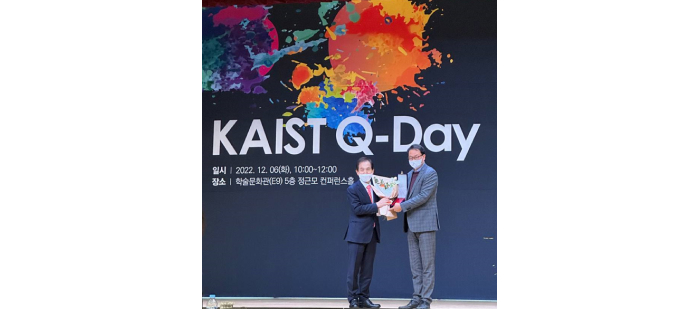
-
- Aug 2022 : Professor Hwasoo Yeo attended the KOTSA-KAIST business agreement ceremony.
-
- Jan 2022 : Professor Hwasoo Yeo and his team places 3rd in Transportation Forecasting Competition (TRANSFOR 22) Data Challenge taken place in Washington D.C.
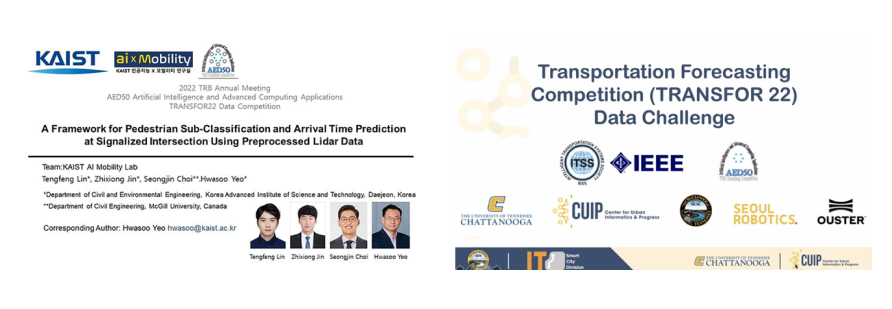
-
- May 2021 : Professor Hwasoo Yeo gave a talk at Chungnam on the era of mobility.
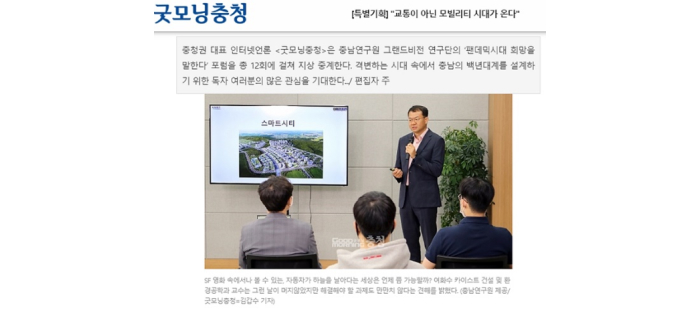
-
- May 2021 : Professor Hwasoo Yeo and his lab appears on EBS on a documentary called “Smart road, a way to the future”
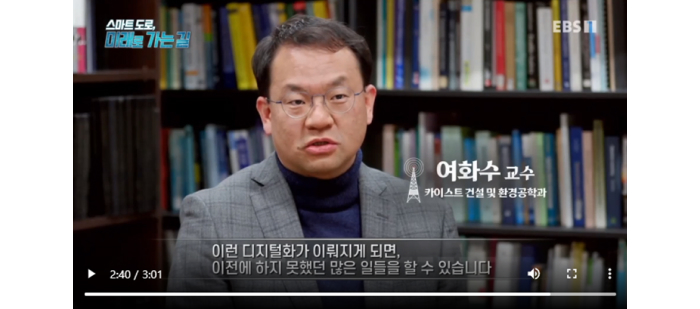
-
- April 2021 : Prof. Yeo joined the Editorial Advisory Board of Transportation Research part C.



